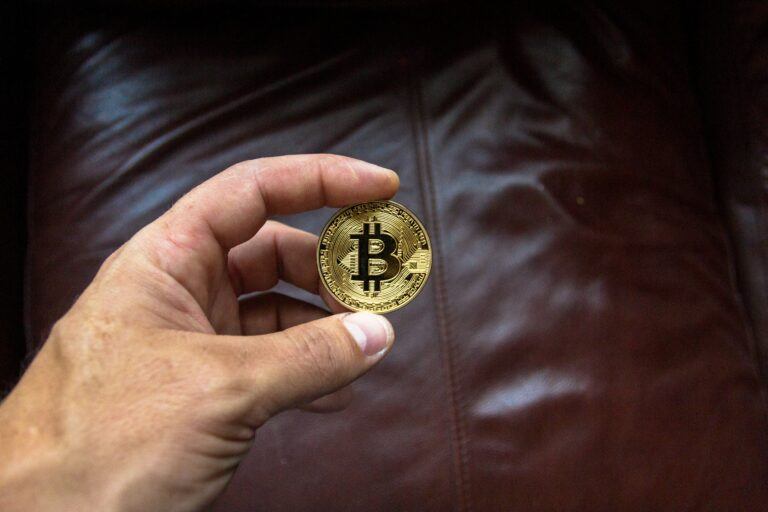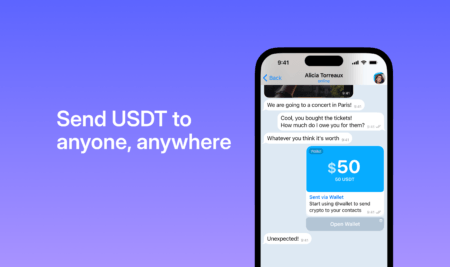In a recent interview with Ran Neu-Ner, host of CNBC’s “Crypto Trader” show, at the BlockShow Europe 2018 conference in Berlin, Bobby Lee (brother of Litecoin creator Charlie Lee), founder and CEO of Bitcoin conglomerate BTCC, explained why he has come to the conclusion that the blockchain cannot be used for any real world applications.
The Interview
First, Lee tried to clarify his controversial statement:
“So, for the very specific database that we call the blockchain, that’s been invented with Bitcoin in 2009. And that type of database, the blockchain, actually cannot be used for real world activities, real world stuff. And the reason is that people all think and all know that blockchain is immutable — it’s public, meaning that the data is public, it’s replicated around the world, it’s decentralized and distributed, and uses PoW, or PoS… But people often forget that the data that goes into the blockchain, first, has to be publicly verifiable. What does that mean? It means that the data goes in. If it is without controversy, then it’s essentially my private information… Take a simple example. What’s the temperature here in this room?… Let’s say we have a blockchain just for your records of all city temperatures in the world… So, you might say it is 30.0 here in Berlin… But I might think it is only 29.7… because we use different thermometers. So, the point is even temperature data is subjective because it is all about where you measure, when you measure it, and to what granularity… So, in that sense, temperature data is subjective. And if that subjective data is in the blockchain, either you own the blockchain and you are the centralized source of information, or it cannot go into the blockchain because people would dispute it.”
After a little more explanation from Lee, Neu-Ner asked this question:
“So, you are saying that all these ICOs that are building blockchain-related projects should be built on databases.”
Lee replied:
“Exactly! So, a classic example is healthcare data on the blockchain. But what does that mean? So does this person have diabetes? We put that in the blockchain. Well, who is to say that he or she has diabetes? It’s just one doctor’s opinion… Maybe one other doctor might say the patient doesn’t have diabetes… Really, what we are trusting is the doctor who wrote the information into the blockchain. We are not trusting the blockchain itself.”
Neu-Ner asked:
“So, what should we use the blockchain for other than spending and running money transactions, Bitcoin transactions?
Lee answered:
“I will be honest with you. The blockchain was created with the invention of Bitcoin. And to this day, and I have been in the industry for over five years, almost seven years if you count when I first got involved with Bitcoin itself. In the last seven years, I have been thinking about this a lot. And my thesis about blockchain not being suitable for real world applications is only in the last six months. So, it took me this long to come to this pessimistic realization, and my current understanding is that only cryptocurrency transactions because they are so virtual and digital in nature and use mathematics, there is no controversy.”
The Follow Up Tweets
A day after the conference was over, on 29 May 2018, Lee went to Twitter to clarify the comments he made at the interview, starting with the following three tweets that came in rapid succession:
95% of ICO projects today claim to be #Blockchain projects, when in fact, they’re just #Database projects
Databases are good; nothing wrong with them! But calling it Blockchain is just #IntellectuallyDishonest
It’s willful ignorance at best & greedy hype marketing at the worst.
— Bobby Lee (@bobbyclee) May 30, 2018
The most commonly ignored aspect of #Blockchain:
—> All data going into the Blockchain needs to be independently & publicly verifiable, and thus insertable by anyone. <— Otherwise, it’s just #PrivateData where you are the sole judge & author == Centralized Database.
Lame!
— Bobby Lee (@bobbyclee) May 30, 2018
95% of ICO projects today claim to be #Blockchain projects, when in fact, they’re just #Database projects
Databases are good; nothing wrong with them! But calling it Blockchain is just #IntellectuallyDishonest
It’s willful ignorance at best & greedy hype marketing at the worst.
— Bobby Lee (@bobbyclee) May 30, 2018
Then, on 1 June 2018, came these tweets:
People new to the #blockchain and #crypto industry very often miss this important point, so please read carefully:
A Blockchain that you control, is not a Blockchain at all.
(That‘s a #database, even after you make it public, and promise for it to be immutable. #FakeBlockchain) https://t.co/LTBxVv684p
— Bobby Lee (@bobbyclee) June 1, 2018
And then on 2 June 2018:
To clarify: A true #Public #Blockchain CANNOT be used to store any information about our real world.
The reason: All real world information is actually subjective & open to debate; as measurements are contentious!
Thus, only a #Centralized #Database can store real world data!😊 https://t.co/XeNPvicybY
— Bobby Lee (@bobbyclee) June 2, 2018
Examples of real world information that is subjective and not insertable into a #Public #Blockchain:
– Temperature of a city?
– How much was a home sold for?
– Person’s height?
– Is he married?
– Does patient have diabetes?
– Michelin rating of restaurant?
– Is the rice non-GMO?— Bobby Lee (@bobbyclee) June 2, 2018
And finally, earlier today, we had this tweet:
“So what can be stored on a #Blockchain?”
So far my conclusion is that Blockchain is only suitable to hold data that is purely Digital in nature, that does NOT reference or interact with the physical world.
Simple reason: real world descriptions & references are all subjective.
— Bobby Lee (@bobbyclee) June 3, 2018
So, Is Bobby Lee Correct?
Lee is definitely a very smart guy, but it seems like he might be taking a strict “orthodox” (Bitcoin) view of what the blockchain means. It appears that, to Lee, there is only one kind of blockchain — the type found in Satoshi Nakamoto’s Bitcoin white paper. Bitcoin is a perfect example of a public blockchain. But businesses typically need private permissioned blockchains, i.e. only certain people are allowed to participate in the network and in certain transactions. One good example of a private permissioned blockchain framework is Linux Foundation’s Hyperledger Fabric. Another is JPMorgan Chase’s Quorum.
It is true that blockchain technology is not always the right solution. But traditional centralized databases are not without their problems. So is it fair and reasonable to expect all “real world” applications of blockchain technology to be perfect? For example, one interesting use case for blockchain technology is tokenization of real world assets.
It is definitely not the case that everyone who proposes this use case is totally unaware of the challenges, in particular the centralization issue. The following quote is from an article (on the Nasdaq website) titled “How Tokenization Is Putting Real-World Assets on Blockchains”:
“One of the main advantages to Bitcoin over non-blockchain systems is that it’s decentralized. But real-world assets generally have a single owner, or a small group of owners.
Many of the models for asset-backed tokens involve an open offer for redemption by a company that holds the real-world asset. The entire token can fail if the central asset holder fails.
The challenge for any tokenization scheme is how to connect the single owner of the real-world asset with the many owners of the token. How can the risk of centralization be mitigated? The answer is typically a combination of clever digital token schemes, contracts, insurance, auditing and third-party guarantees.
One answer to the problem of centralization is to rely on a centralized party that has trust because it is the relevant government authority that decides who owns what.”
However, Lee is correct in thinking that using public blockchains for cryptocurrency transactions — the thing they were originally invented for — might be one of the best, least challenging, and least controversial use cases for such blockchains. You may not agree with Lee, but his comments at this interview and the questions he raises on Twitter are bound to generate much valuable discussion, and will hopefully lead to a better understanding of blockchain technology. And for that, we should thank him.
The full Interview is available on YouTube on the “CNBC Crypto Trader” channel (the interview segment with Bobby Lee starts at the 2:06 mark, but the whole episode, as usualy, is highly informative and entertaining).
Featured Image Credit: Photo via Pexels









